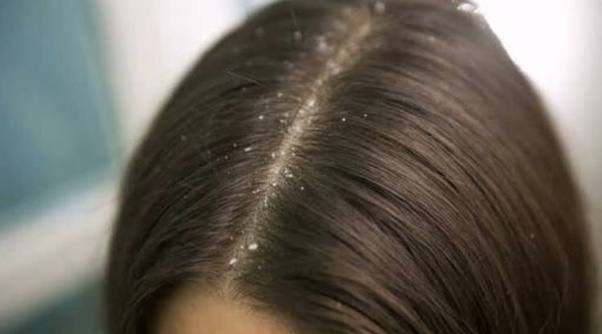Aspirin
Aspirin contains the same active ingredient (salicylic acid) as many medicated dandruff shampoos. Keep flaking in check by crushing two aspirins to a fine powder and adding it to the normal amount of shampoo you use each time you wash your hair. Leave the mixture on your hair for 1-2 minutes, then rinse well and wash again with plain shampoo. Here are some more amazing uses for aspirin.
Tea tree oil
One study showed that shampoos with just 5 percent tea tree oil significantly improve the severity of dandruff. You can also add a few drops of tea tree oil to your favorite shampoo as you wash normally. Tea tree oil can actually reduce the effects of several unpleasant conditions.
Baking sodaa
Your kitchen could hold the key to an itch-free, flake-free scalp. Some ingredients you use every day double as effective dandruff remedies—like baking soda. Wet your hair and then rub a handful of baking soda vigorously into your scalp. Skip the shampoo and go right to rinsing. Baking soda reduces overactive fungi that can cause dandruff. Your hair may get dried out at first, but after a few weeks your scalp will start producing natural oils, leaving your hair softer and free of flakes. Check out these other ingenious uses for baking soda.
Apple cider vinegar
Dr. Mehmet Oz swears by apple cider vinegar as a dandruff remedy, as the acidity of apple cider vinegar changes the pH of your scalp, making it harder for yeast to grow. Mix a quarter cup apple cider vinegar with a quarter cup water in a spray bottle and spritz on your scalp. Wrap your head in a towel and let sit for 15 minutes to an hour, then wash your hair as usual. Do this twice a week. Learn more about the amazing health benefits of apple cider vinegar.
Mouthwash
To treat a bad case of dandruff, wash your hair with your regular shampoo, then rinse with an alcohol-based mouthwash. Follow with your regular conditioner. Mouthwash's anti-fungal properties help prevent dandruff-causing yeast from growing. Here are some myths about mouthwash that just aren't true.
Coconut oil
Crunchybetty.com says coconut oil is a "tried and true" dandruff treatment, and it smells nice too. Before showering, massage 3-5 tablespoons of coconut oil into your scalp and let sit for about an hour. Shampoo normally. You can also look for a shampoo that already contains coconut oil. Coconut oil has lots of other great beauty uses as well.
Lemon
Dandruff relief may be no farther away than your refrigerator, if you have lemons on hand (which you should, because they have lots of handy uses!) Just massage 2 tablespoons lemon juice into your scalp and rinse with water. Then stir 1 teaspoon lemon juice into 1 cup water and rinse your hair with it. Repeat this daily until your dandruff disappears. Lemon's acidity helps balance the pH of your scalp, which helps keeps dandruff at bay.



 Contact Us
Contact Us






 Hospitals
Hospitals
 Doctors
Doctors
 Diagnostic
Diagnostic
 Pharmacy
Pharmacy
 Health Tips
Health Tips
 Blog
Blog

























Comments